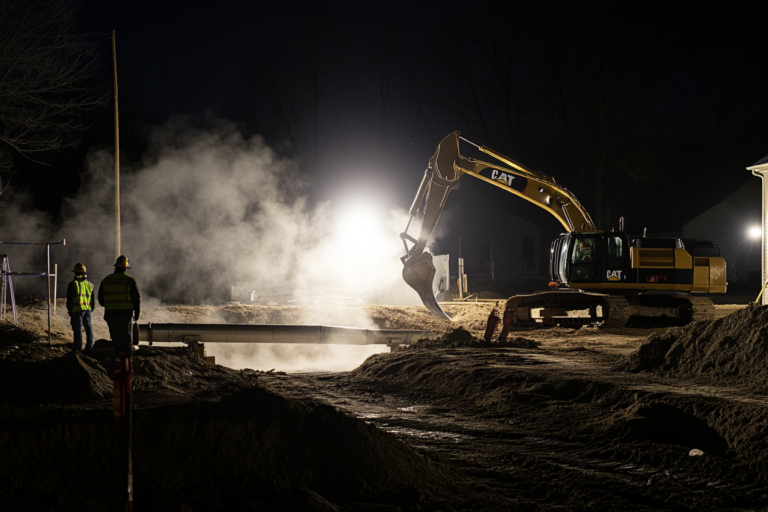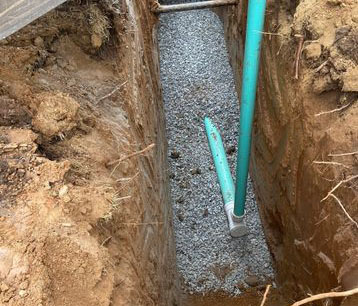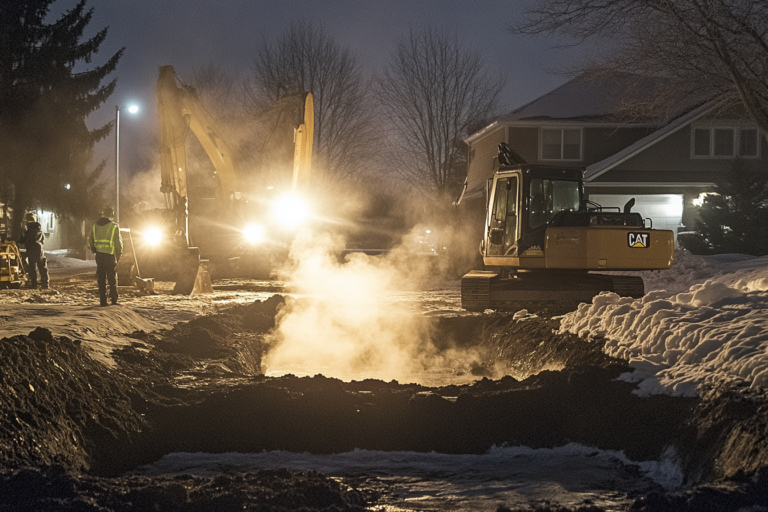Don’t Let After-Hours Disasters Drain Your Budget – Essential Tips for Home and Business Preparedness
Picture this: It’s 2 AM during a stormy Howard County night. Your commercial parking lot develops a mysterious sinkhole, or your basement floods due to a ruptured sewer line. In moments like these, knowing how excavation emergencies unfold isn’t just helpful—it’s critical for protecting your investment. Unlike standard plumbing issues, soil-related emergencies demand specialized expertise, heavy equipment, and immediate intervention to prevent catastrophe.
Howard County’s unique soil composition poses distinct challenges. From Clarksville’s clay-heavy ground threatening foundation stability to Columbia’s older neighborhoods dealing with aging utility lines, excavation emergencies escalate rapidly. Water doesn’t wait for business hours when eroding soil beneath driveways, compromising structural supports, or flooding electrical vaults. The hallmark of true emergency excavation? Issues that endanger people, threaten property integrity, or halt business operations entirely.
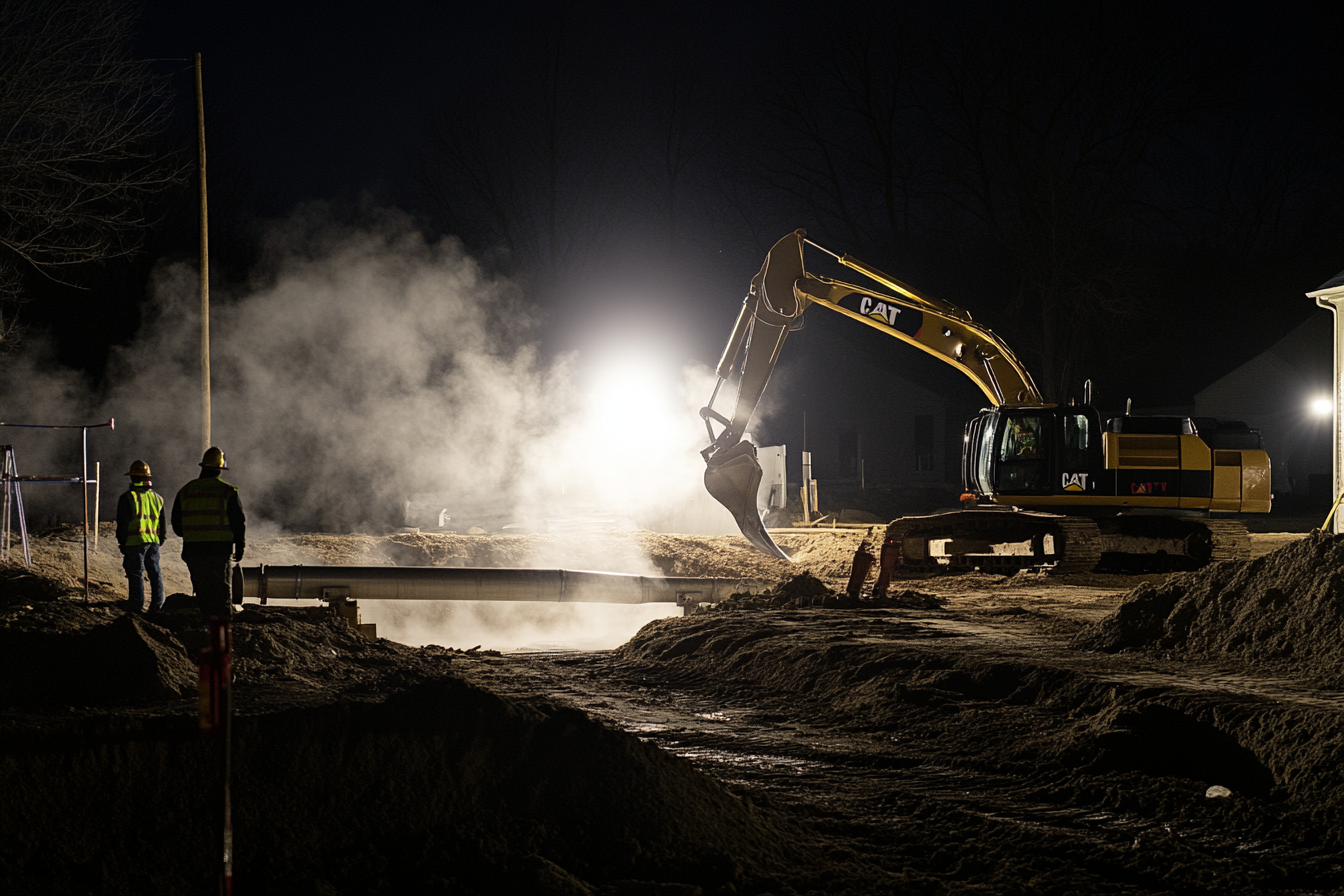
Delayed response carries staggering risks. That collapsed sewer line in Elkridge? Standing water creates sinkholes that swallow landscaping overnight. A failed retaining wall in Ellicott City? Neighboring properties become endangered within hours. Soil saturation from damaged water mains liquefies ground near foundations, putting buildings at immediate risk. Local regulations often require hazards to be secured within strict timeframes, making 24-hour excavation services non-negotiable for Howard County property owners.
Smart preparation mitigates disaster impact. Start with knowledge mapping: Locate buried utility lines before any grading work—Howard County’s Miss Utility (811) marking is step one. Ensure drain tile systems divert water away from foundations, especially in hilly terrain like Marriottsville. Schedule annual sewer camera inspections to catch pipe deterioration early. Post-storm, walk your property immediately; new cracks, soggy patches, or uneven settling warrant expert assessment. Secure key documents off-site: property surveys, utility maps, and insurance policies.
Choosing an emergency excavation partner requires vetting. Look for “utility damage prevention certified” (UDPC) credentials critical in Howard County compliance. Verify specialized equipment: vacuum excavators prevent line damage during diagnostics, while pipe-bursting rigs enable trenchless sewer repair. Ensure structural shoring capabilities for projects near foundations. Ask about environmental protocols—diplomatic sediment control prevents Chesapeake Bay violations. Local response time guarantees matter; crews should reach you in 60 minutes or less anywhere in Howard County.
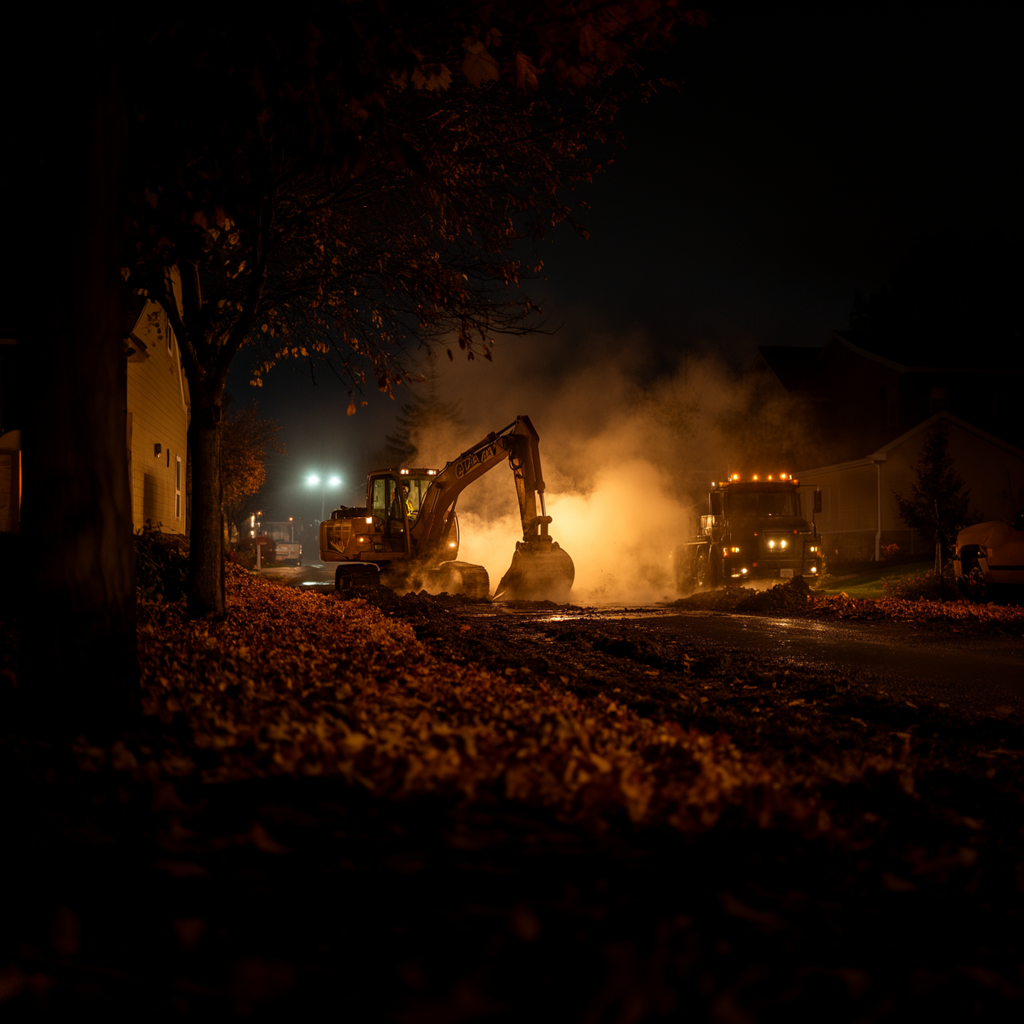
Beyond emergency contacts, build protocols: Designate decision-makers for off-hour authorizations. Create property-specific crisis binders containing shutoff locations and insurance contacts. Explore service agreements—pre-negotiated emergency rates prevent expense shock during peak demand. Document damage meticulously; timestamped video accelerates insurance processing after events like drain line collapses or landslide repairs.
A proactive stance shields Howard County properties best. While emergencies strike unexpectedly, partnering with excavators offering 24-hour structural interventions prevents manageable issues from becoming catastrophic expensive liabilities under the demanding conditions unique to our region. Recognize that soil instability requires urgent specialized techniques unavailable through standard plumbers. Building failsafe response plans with trusted excavation crews isn’t an expense—it’s an investment in resilience. For extended insights into commercial-grade emergency protocols, explore our comprehensive Commercial 24 Hour Emergency Services resource detailing specialized solutions. Invest with confidence in your property’s protection: Schedule a risk assessment with our Columbia-based excavation team anytime.

